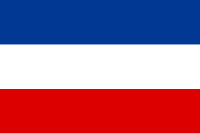
Photo from wikipedia
This article investigates the politics of national identity implemented in Rijeka after World War II, when the city was integrated into socialist Yugoslavia. These national and political transitions posed various… Click to show full abstract
This article investigates the politics of national identity implemented in Rijeka after World War II, when the city was integrated into socialist Yugoslavia. These national and political transitions posed various challenges to the consolidation of the Yugoslav Communists’ power. The nationalities policy embedded in the slogan “Brotherhood and Unity” was the official answer to the national question, promoting collaboration among the Croatian majority, the Italian minority, and other national communities in the city. This article focuses on the definition of postwar Rijeka’s image, investigating the relationship between Yugoslav socialism and national identities in everyday political practice. The negotiation of the representation of national identities in a socialist society led to ambivalences, contradictions, and contentions expressed in and through Rijeka’s public spaces, highlighting the different orientations of cultural and political actors. The process of building socialist Yugoslavia in this specific borderland context reveals the balance and tension between the multinational framework and the integrative tendencies pertaining to the legitimization and consolidation of the socialist system.
Journal Title: Nationalities Papers
Year Published: 2018
Link to full text (if available)
Share on Social Media: Sign Up to like & get
recommendations!